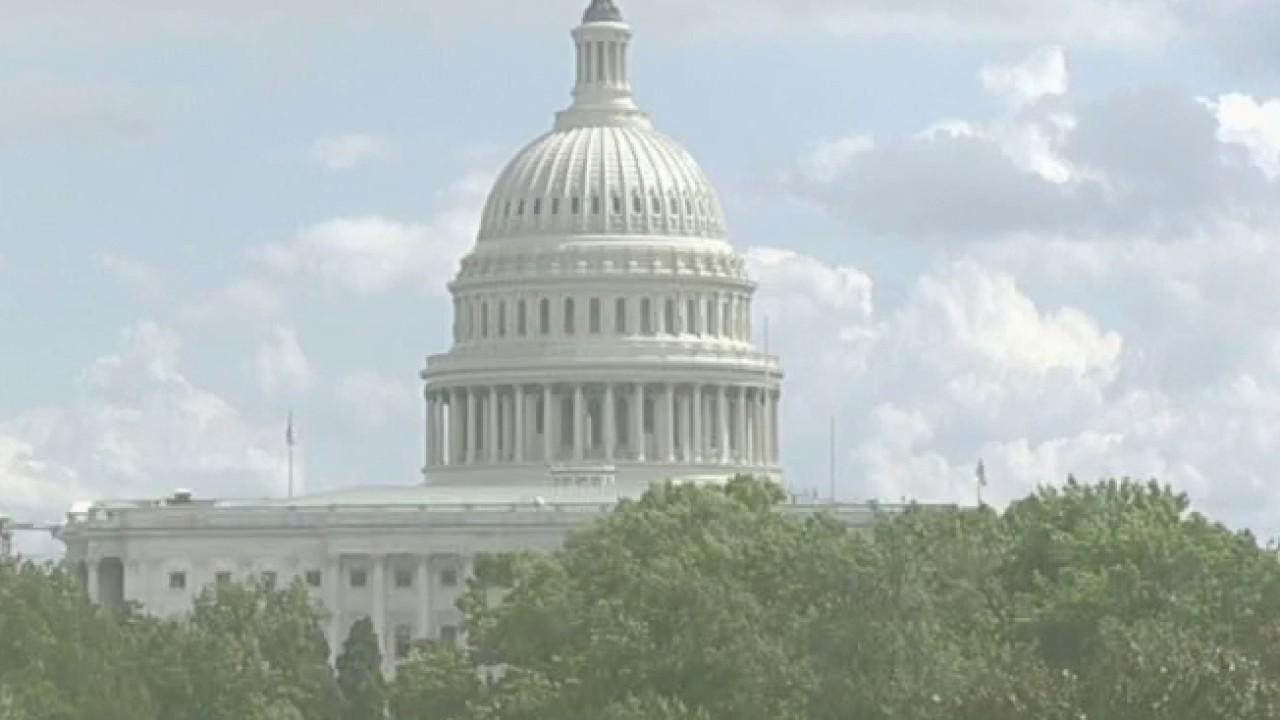Second coronavirus stimulus check could face some opposition
White House wants to limit the cost of the fourth coronavirus relief package at $1T or less
As Congress prepares to take up the next coronavirus stimulus package, the Trump administration is exploring proposals to send a second cash payment more limited in size and scope to some Americans still reeling from the pandemic.
But the direct payment could face opposition from Senate Republicans, who have voiced concerns about the nation's ballooning deficit and worried the checks were ineffective in providing aid to the Americans who most needed it.
WHEN AMERICANS COULD RECEIVE THE CASH FROM A SECOND STIMULUS CHECK
“It was a massive amount of money, not at all targeted to the people who really needed it," Sen. Pat Toomey, R-Penn., said last week. "So, I’m a skeptic about whether we should do another round of that.”
Toomey is not alone in wondering whether more cash payments are necessary to blunt the economic pain of the virus-induced recession, the worst downturn since the Great Depression.
Sen. John Kennedy, R-La., noted last week the U.S. owes $3 trillion and "climbing," which does not include the $3 trillion added to the Federal Reserve's balance sheet.
“If you put a gun to my head and said, ‘Tell me what’s going to happen, give me your best guess,’ I’d have to tell you honestly, I don’t know," he said.
EXTRA $600 IN UNEMPLOYMENT BENEFITS ENDS NEXT MONTH AS MILLIONS OF AMERICANS REMAIN OUT OF WORK
There's some concern among White House officials that Americans pocketed the money rather than spending it, according to The Washington Post, citing a person with knowledge of the internal discussions. Since the pandemic started, U.S. bank deposits have surged by $2 trillion, buoyed by the federal government's massive relief efforts.
Negotiations between Congress and the Trump administration on another round of virus-related stimulus are set to intensify next week once Senate lawmakers return to Washington from their two-week Fourth of July break.
That gives lawmakers just two weeks to reach an agreement on legislation: The House is scheduled to start its recess by Aug. 3, and the Senate is expected to follow one week later. Senate Majority Leader Mitch McConnell has said he wants to finish work on the next round of aid before August. The earliest we may see a vote would be in late July.
SECOND STIMULUS CHECK STILL ON THE TABLE DESPITE BETTER-THAN-EXPECTED JOBS REPORT
The White House wants to limit the cost of the fourth coronavirus relief package at $1 trillion or less in order to maintain pivotal support from conservative Republicans who are starting to balk at the unprecedented debt and spending levels.
In the first eight months of the fiscal year, the U.S. deficit soared to $2.7 trillion, the Congressional Budget Office said last week. The gap between what the government spends and what it collects for fiscal 2020 is expected to hit $3.7 trillion, a record. The current record for a fiscal year deficit is $1.41 trillion, set in 2009.
Congress has already approved three massive stimulus packages totaling nearly $3 trillion to offset the economic pain triggered by the outbreak of the virus and subsequent lockdown. That includes the $2.2 trillion CARES Act signed into law at the end of March, which sent one-time payments of up to $1,200 to Americans; established the Paycheck Protection Program and expanded unemployment benefits by $600 per week through the end of July.
McConnell suggested the legislation could include direct payments only to people who make $40,000 or less a year.
WHAT WILL THE NEXT VIRUS RELIEF BILL LOOK LIKE? CONGRESS MULLS STIMULUS CHECKS, BACK-TO-WORK BONUSES
“I think the people who have been hit the hardest are people who make about $40,000 a year or less,” he said on Monday.
It's unclear how much money Americans could receive; White House economic adviser Larry Kudlow last week said the next round could be for less than $1,200 and directed toward out-of-work and low-income Americans.
If Congress approves a second cash payment, the federal government would be able to distribute the money "very, very quickly," Treasury Secretary Steven Mnuchin said Thursday.




















